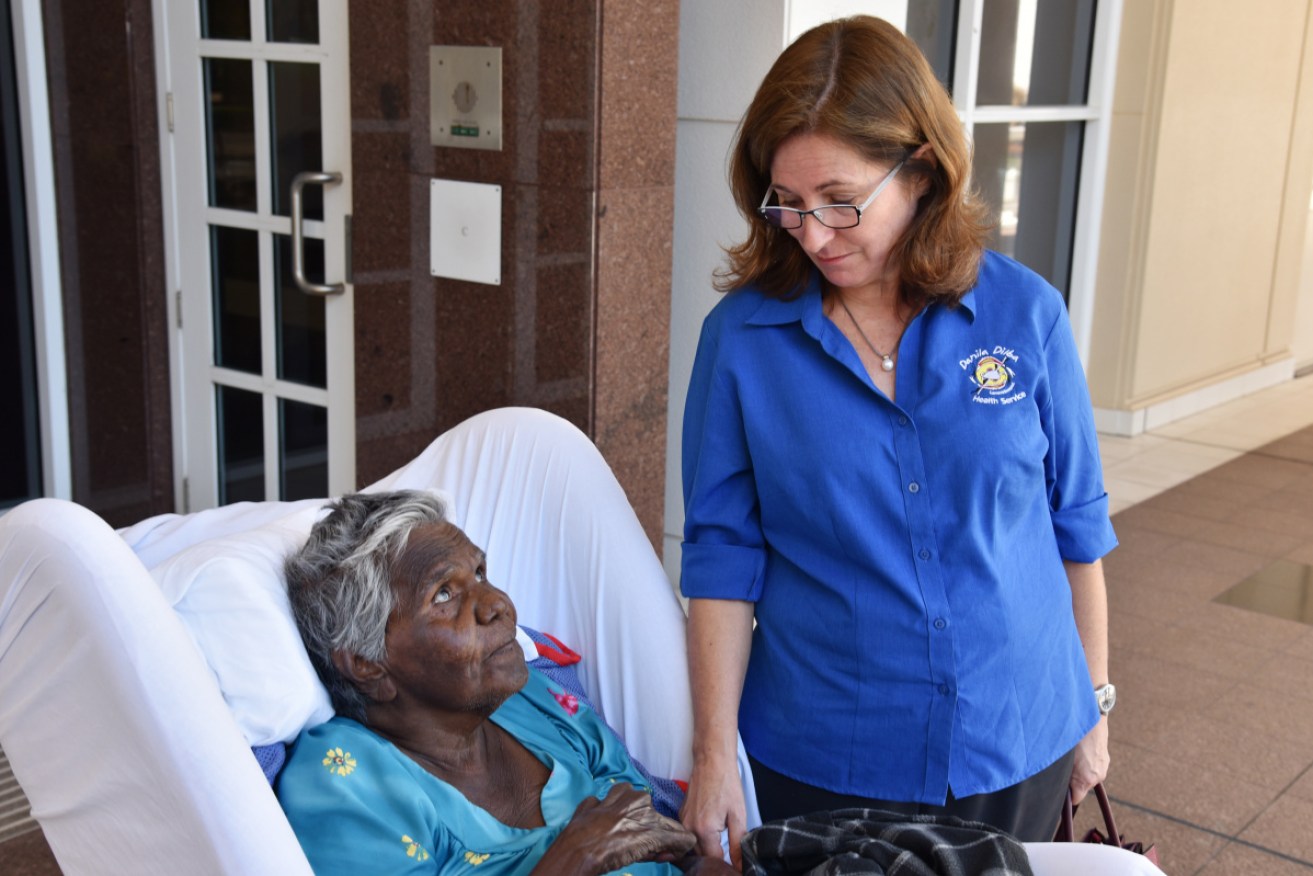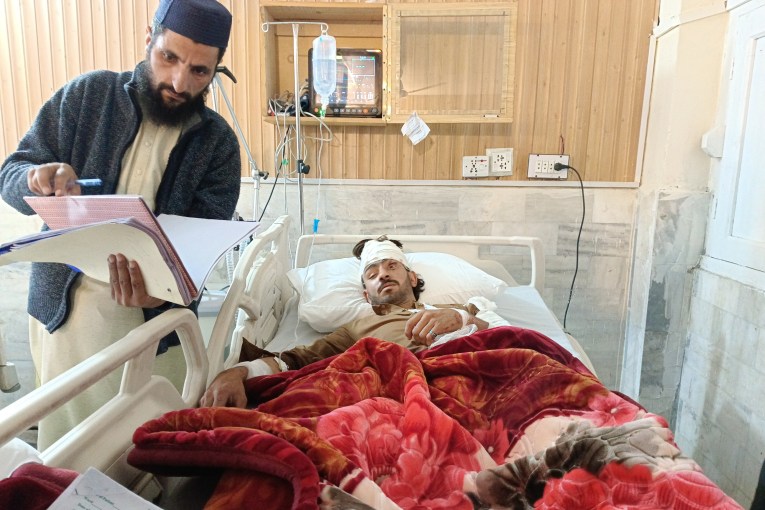Paul Bongiorno: The aged care sector is dying for urgent action


Aboriginal Elder Mildred Numamurdirdi, with GP Meredith Hanson-Knarhol, had to travel 800 kilometres to receive care.
After 10 months of harrowing evidence and almost 7000 submissions, the Royal Commission into Aged Care has already confirmed the community’s worst fears.
Indeed, the neglect and abuse of the elderly that the media uncovered is so incontrovertibly horrific, the time for urgent action is well passed.
This commission will hand down an interim report this Thursday.
The Prime Minister Scott Morrison has agreed to extend the final reporting deadline by nine months till November next year.
But there is a universal view across the sector that waiting for those findings to be handed down before responding to what has already been uncovered would be a gross dereliction of government duty.
Just one example makes this point.
Last year 16,000 elderly Australians died while waiting for their approved home care package.
Another 120,000 older Australians are yet to receive home care, with wait times now more than two years for the higher levels of need.
Last month, the PM told Parliament it’s the government’s “top priority” to increase the number of in-home aged care places.
But there is a catch.
Mr Morrison said the “only way you can do that … is by ensuring you maintain a strong budget … and that’s what our government is doing”.
Translation: Nothing is more important than delivering the promised budget surplus.
Aged Care Minister Richard Colbeck on Sunday attended the first day of the Leading Age Services Australia (LASA)’s national congress in Adelaide and left many of the delegates unimpressed by his lack of any sense of urgency.
Senator Colbeck is on the record reminding everyone that the Commonwealth funds the sector to the tune of $20 billion annually, but he is well aware aged care is in crisis.
The government in February offered a $320 million, one-off cash injection to struggling aged care providers to prevent the system from collapsing.
LASA is now leading a campaign for an immediate injection of $1.3 billion.
Its CEO Sean Rooney says “this is needed now to avert the risk of service failures, job losses and missed care”.

The royal commission heard Annunziata Santoro had maggots in her wounds while at The Assisi Centre in Melbourne before her death. Photo: Supplied
Mr Morrison’s announcement of the Royal Commission in September last year was seen as a time-buying exercise, especially as the government had already received two high-powered reports into the sector in response to the media’s revelations and had not acted on them.
Labor’s Julie Collins said the release of the interim report later this week “is the perfect opportunity for the government to take action”.
The Australian Medical Association is of the same view but in releasing its submission this month made the point: Pumping the billions more needed will not fix the problem if the big for-profit providers are able to siphon off the extra money to their bottom line.
This could be a hard ask for a government ideologically dedicated to cutting red tape and to fostering the profitability of private enterprise.
At least here it is having a measure of success.
According to the Tax Justice Network, between them the six largest for-profit companies were given over $2.17 billion in government subsidies – 72 per cent of their total revenue – and made profits of $219 million per year between 2016 and 2018.

Would you eat this? These pictures were supplied to the ABC as part of a crowdsourcing project and investigation into food in aged care homes. Photo: ABC
AMA president Dr Tony Bartone says we already know more home care packages are needed, 24-hour on-site nurses, regulated staff-to-patient ratios and more realistic incentives for doctors to attend centres.
According to one of the royal commissioners, Lynelle Briggs, Thursday’s report will be largely the work of Richard Tracey QC, the chairman who died writing it.
Ms Briggs says Mr Tracey labelled aspects of the aged care system cruel and unkind after two particularly gruelling days of evidence in Darwin.
She told the commission hearing after Mr Tracey’s death: “It was Richard who encouraged me to drive our policy agenda beyond change at the margin to transformative change, given the degree of sub-standard care that was apparent to us.”
We wait to see what those “transformative” recommendations will look like, but more importantly what notice – if any – the Morrison government takes of them.
- Paul Bongiorno AM is a veteran of the Canberra Press Gallery, with 40 years’ experience covering Australian politics








